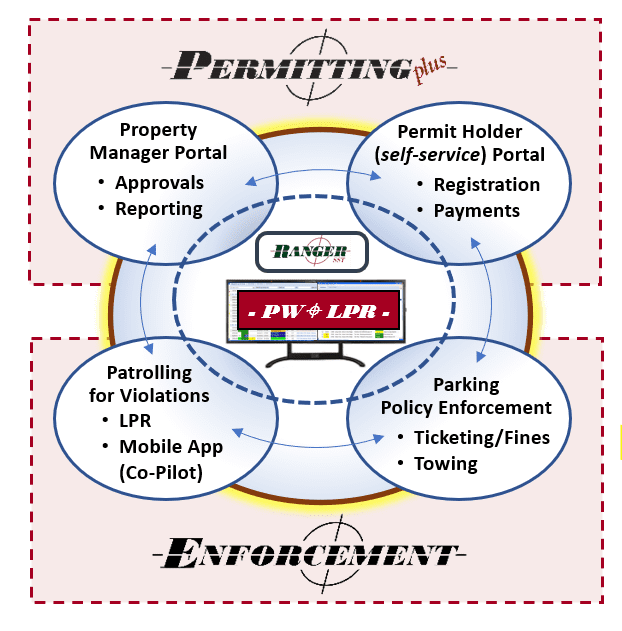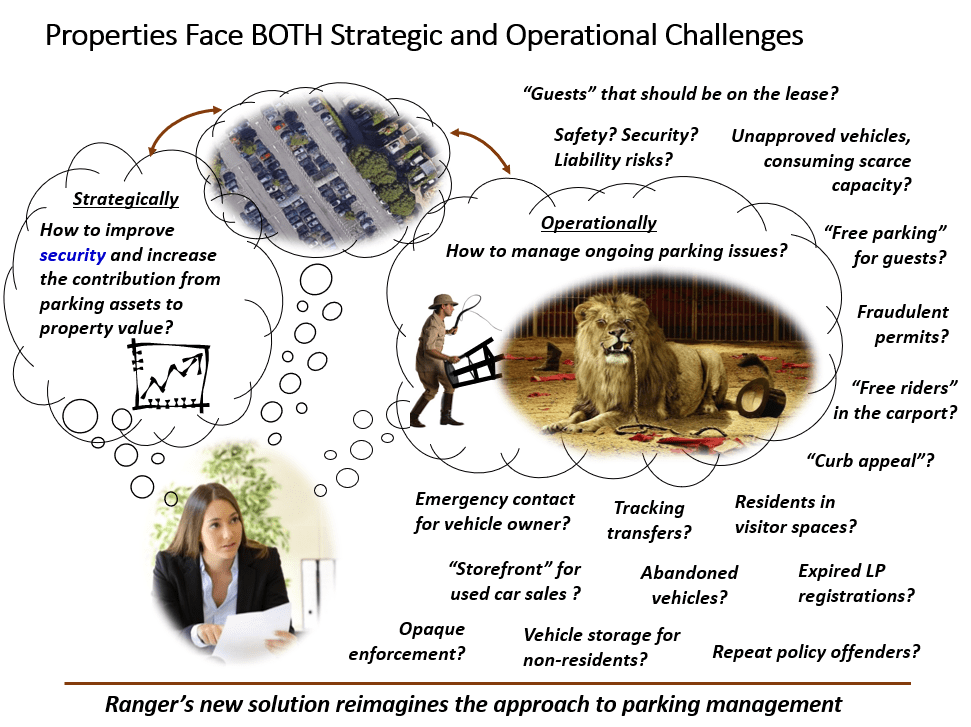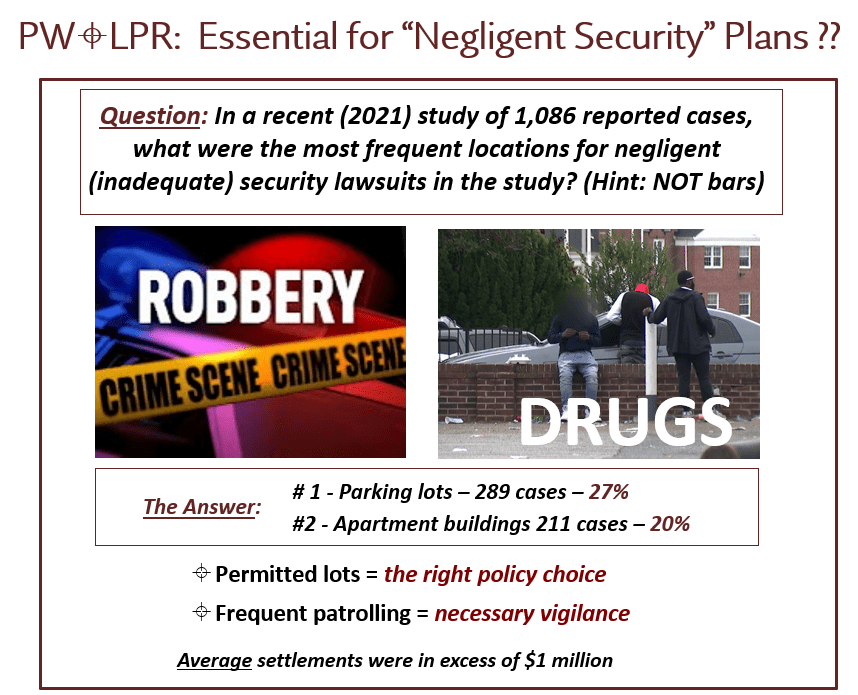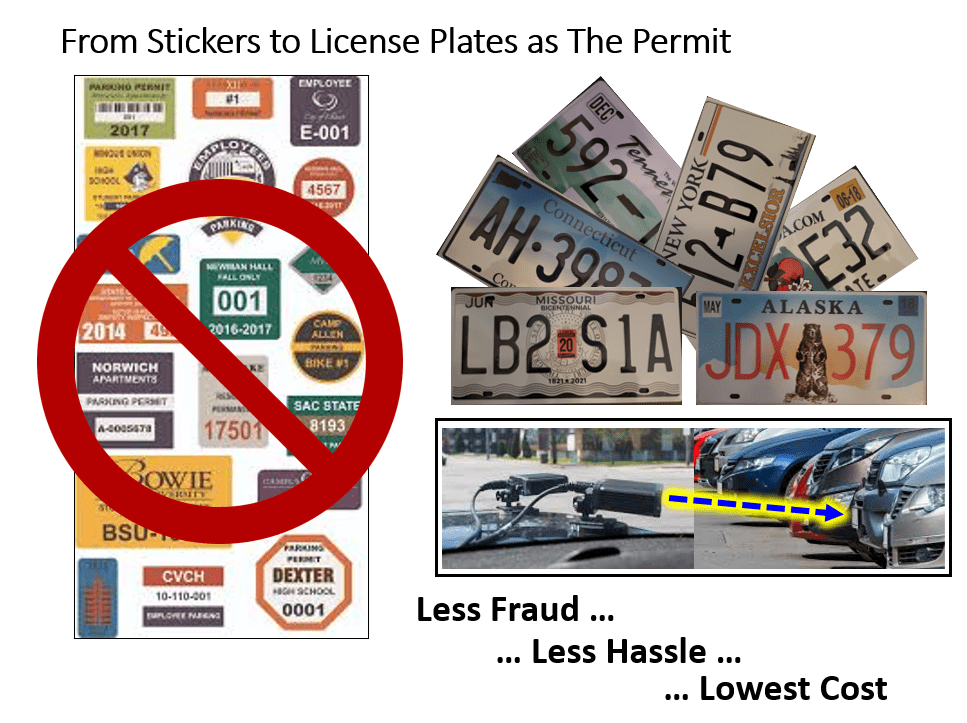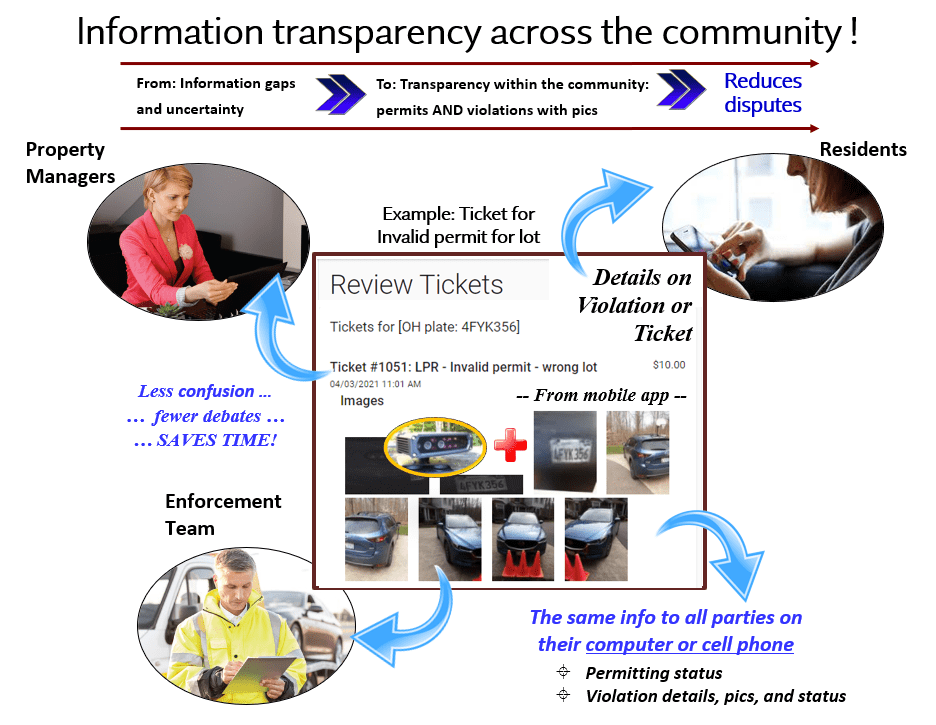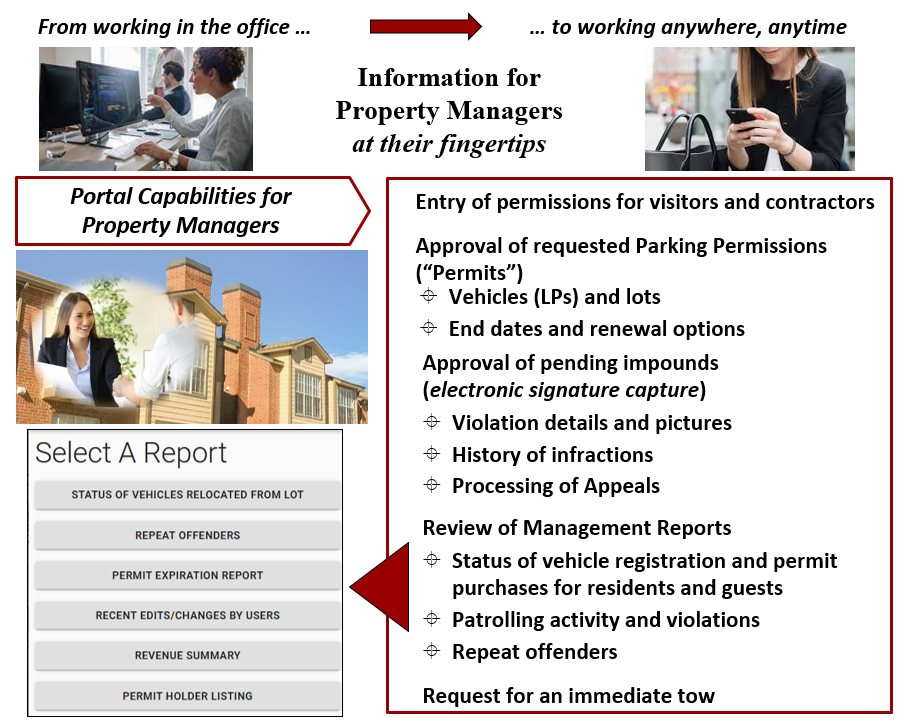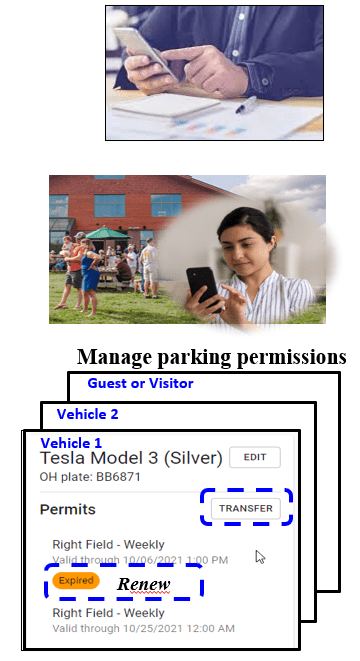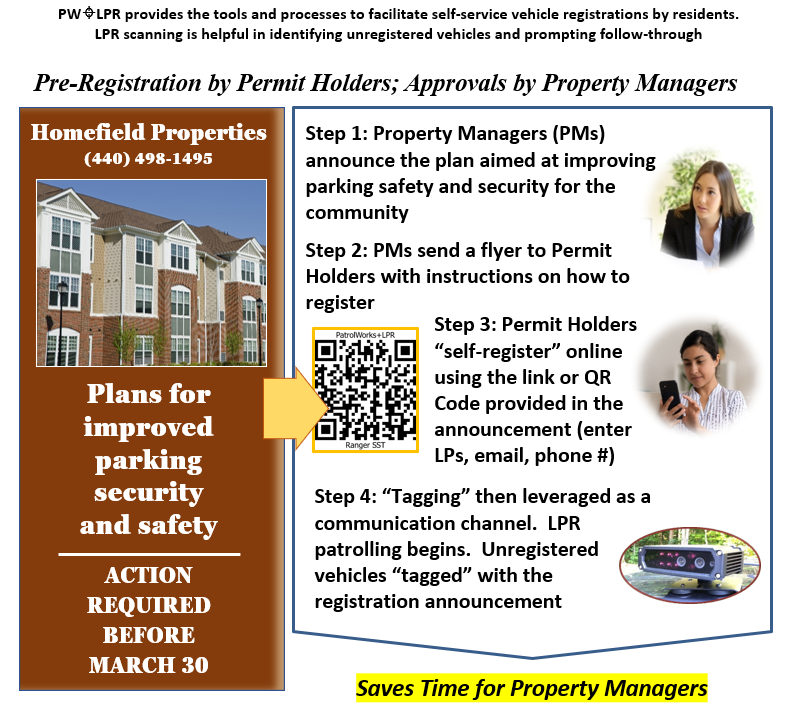Parking Management Benefits
- SAVES TIME: Streamlined workflows and better information for Property Managers
- BETTER SECURITY: LPR enables frequent patrolling with LPs as the permit
- ALL POLICIES: Co-Pilot can process ALL policy violations on ANY
- TRANSPARENCY: Permitting AND Violation Information available on the cell phones of Property Managers AND Residents
- CONVENIENCE: Self-Service for Residents
- CUSTOMER FRIENDLY: Ticketing provides “kinder, gentler” enforcement option before impounding
Major Benefits for Property Management Companies
- IMPROVES RETENTION – Enhanced services, convenience, and security for residents
- REDUCES DISPUTES – Information Transparency: Managers AND Residents get both violation AND permit information on their mobile phones …
- SAVES TIME – Resident self-service: vehicle registration, transfers, and guest permits
- STREAMLINES WORKFLOWS – Timely, management info and automated processes
- PRESERVES CAPACITY and IMPROVES SECURITY – Frequent LPR patrolling
- STRENGTHENS EXECUTION – Single source responsibility for policy implementation
- INCREASES ASSET VALUE – Incremental, unbundled parking fees by vehicle and fines
NO COST for the property … modest permit fee for residents optional, but recommended
Information Transparency Across the Community
The portals for both Property Managers and Residents (both mobile-friendly web apps) provide visibility on parking across the community. Not just transparency on permitting, but also violations where information (including pictures) is more valuable.
Information for Property Managers on Their Phones
Property Managers are no longer “tethered” to their office computers for parking information, permitting status, violation information, and impounding approvals.
- Entry of permissions for visitors and contractors
- Approval of requested Parking Permissions (“Permits”)
- Vehicles (LPs) and lots
- End dates and renewal options
- Approval of pending impounds (electronic signature capture)
- Violation details and pictures
- History of infractions
- Processing of Appeals
- Review of Management Reports
- Status of vehicle registration and permit purchases for residents and guests
- Patrolling activity and violations
- Repeat offenders
- Request for an immediate tow
Flexibility for Property-Specific Policy Preferences
PatrolWorks with LPR is straightforward enough to be configured for a small apartment building with one lot, and also robust enough to be configured for complex universities and medical centers.
Extreme Example: Doctor in Residency at a Teaching Hospital
- 4 Permits at the place of work; 4 permits at the place of residence
- 2 Vehicles
- Permits for surface lots, garage, and carport
Each permit could have a different price and duration

Conveniences for Residents
Residents realize greater convenience from the self-service functionality to purchase (including Guest Permits) and transfer parking permissions from anywhere on their mobile phone. Property managers realize time savings!
Vehicle Registration
- Parking permission for one or more personal vehicles
- Transfer of “permits” – e.g., to a new car or a temporary rental
Purchase of Permits
- By LP, for the desired duration, for one or more lots, as approved
- Advance purchase of guest parking permits, subject to available capacity
Payment of fines, If any
- Review of violation details and pictures
- Payment of ticket in lieu of impounding
Pre-registration by Permit Holders; Approvals by Property Managers
Step 1: Property Managers (PMs) announce the plan aimed at improving parking safety and security for the community
Step 2: PMs send a flyer to Permit Holders with instructions on how to register
Step 3: Permit Holders “self-register” online using the link or QR Code provided in the announcement (enter LPs, email, phone #)
Step 4: “Tagging” is then leveraged as a communication channel. LPR patrolling begins. Unregistered vehicles “tagged” with the registration announcement

